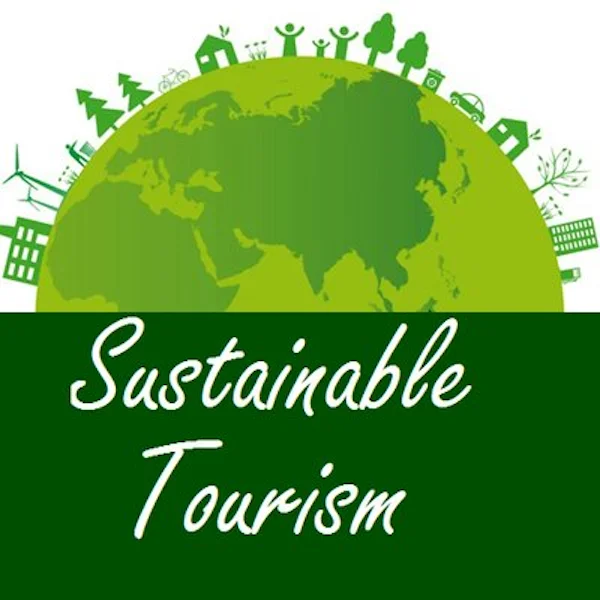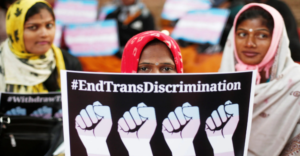~ YASHIKA SEHGAL
“To travel is to evolve.”
~ Pierre Bernardo
The world has realised the importance of a lot of things during the covid pandemic which we all had been taking for granted but the thing which all of us have missed the most during this time is travelling. We love exploring different places and getting a new experience away from home but do we bother to take care of the environment while we are travelling to different places. That is where the concept of sustainable tourism emerges. UNWTO defines sustainable tourism as “Sustainable tourism is when development meets the needs of present tourists and host regions while protecting and enhancing opportunities for the future. It is envisaged as leading to management of all resources in such a way that economic, social and aesthetic needs can be fulfilled while maintaining cultural integrity, essential ecological processes, biological diversity, and life support systems.” In simpler terms, it means tourism which is economically feasible as well as caters to the needs of tourists without harming the physical environment or the resources of the host country on which the future tourism will depend. A balance must be maintained between them for long-term sustainability. This concept includes 3 aspects which should be followed in all forms of tourism. We should make optimal use of environmental resources and help to conserve natural heritage and biodiversity. We must respect the socio-cultural authenticity of host communities and preserve their culture and traditions. We should ensure viable, long-term economic operations, providing socio-economic benefits to all stakeholders that are fairly distributed, including stable employment and income-earning opportunities and social services to host communities, and contributing to poverty alleviation. Making tourism more sustainable is the need of the hour. However, it is a difficult task as tourist satisfaction cannot be compromised at any cost.
STATISTICS
- A large majority of global travellers – 87% – say that they want to travel sustainably, according to the new Sustainable Travel Report released by Booking.com in honour of Earth Day on April 22.
- Nearly four in 10 (39%) confirm that they often or always manage to do so; however, 48% indicate they never, rarely or only sometimes manage to travel sustainably, suggesting that while promising strides are being made for a greener future, there is still plenty of room to turn intentions into action, Booking.com said.
- The meaning of sustainable is different for everybody. The most commonly believed is that it means staying in eco-friendly or green accommodations. UNWTO is working together with UNSD and leading country experts, and under auspices of the UN Committee of Experts on Environmental-Economic Accounting (UNCEEA) and the UNWTO Committees on Statistics and Tourism Satellite Accounts and on Tourism and Sustainability.
The Center for Responsible Travel (CREST) released a tourism industry study according to which consumer demands for sustainable travelling experiences are increasing. It also analyzes the role that businesses and destinations play in mainstreaming responsible tourism.
CHALLENGES OF SUSTAINABLE TOURISM
The current challenges and barriers in tourism sustainability are high energy use, extensive water consumption and habitat destruction. We are not able to manage our non-renewable resources aptly. Tourism is an ambiguous sector. Conceptually, travelling looks really appealing but it includes various aspects which need to be strictly adhered to at all times. Tourism has a very complex adaptive system. It involves various big companies as well as individuals who have their own ideas to make their business flourish. Therefore this system is never constant. Countries hardly ever focus on rural tourism.
WHAT IS RURAL TOURISM?
Rural tourism is local tourism of the area, sought after and controlled by local authorities. Other than it being a technique of minting money, it showcases village life, village culture and arts as well as beautiful and unpolluted rural locations which most people living in urban areas are unaware of. This type of cultural tourism is really beneficial. It will help in improving the economy of the rural areas and will also give the villagers a chance to interact with the tourists and boost their social life. There is an increase in the level of awareness about rural tourism since the past few years but it needs to be strengthened even more as still there are remote areas about which either very few people know about or people don’t prefer to go there as they are not expensive and are posh places.
HOW TO BE A SUSTAINABLE TRAVELLER
Some of the points which we should keep in keep in mind while travelling:
- Avoid using anything made of plastic.
- Choose your transport wisely. Try and travel by vehicles which do not use carbon to reduce the carbon footprint.
- Choose sustainable accommodations which preserve, protect and conserve local environments
- Pack for the trip smartly. Avoid use and throw items and instead pack reusable ones.
- Seek out local experiences at your travel destination so that the money is circulated back into the local economy.
- If going out for shopping, buy goodies and souvenirs from local vendors.
INDIA’S STEPS TOWARDS SUSTAINABLE TOURISM
- In 2016, the Ministry of Tourism launched the Sustainable Tourism Criteria for India (STCI) in association with Ecotourism Society of India (ESOI), a non-profit organization formed in 2008 with the sole aim to promote and ensure environmentally responsible and sustainable practices in the tourism industry.
- Tour operators approved by the Ministry of Tourism have to sign a pledge for commitment towards Safe & Honourable Tourism and Sustainable Tourism to fully implement Sustainable Tourism practices, consistent with the best environment and heritage protection standards.
- At the state level also, sustainable tourism has been promoted. For example, Andhra Pradesh partnered with UNWTO to promote sustainable tourism, Odisha and Sikkim introduced their ecotourism policies in 2013 and 2011 respectively.
- The Swadesh-Darshan plan was initiated by the Govt for establishing theme-related tourism in 2014. The Prasad project launched by Government for the development of pilgrimage/spiritual sites
- The Tourism Ministry developed a mobile application known as Swachh- Paryatan in February 2016, which allows people to report any hygiene issues at various tourist places.
- The Ministry of Tourism initiated a 24×7 Toll-Free Tourist Helpline in many languages in February 2016.
- To promote the North-Eastern states, an International Tourism Mart is organized every year with the objective to highlight the tourism potential in these regions.
- Archaeological Survey of India has identified several monuments to develop them like a Model Monument. The government will 4 provide all the basic facilities like Wi-Fi, security, invasion free areas, showing films to give knowledge about the importance of these monuments and also make them aware about the importance of movements like Swachh Bharat Abhiyaan under the Adarsh Smarak scheme.
Tourism is a very dynamic industry. It keeps changing according to the needs of travellers and society. Apart from the adventure factor, it should be the collective effort of the state as well as individuals to work together in global interest and make this concept of sustainable tourism a success in the coming years.
Must read:https://skchildrenfoundation.org/hornbill-festival/





